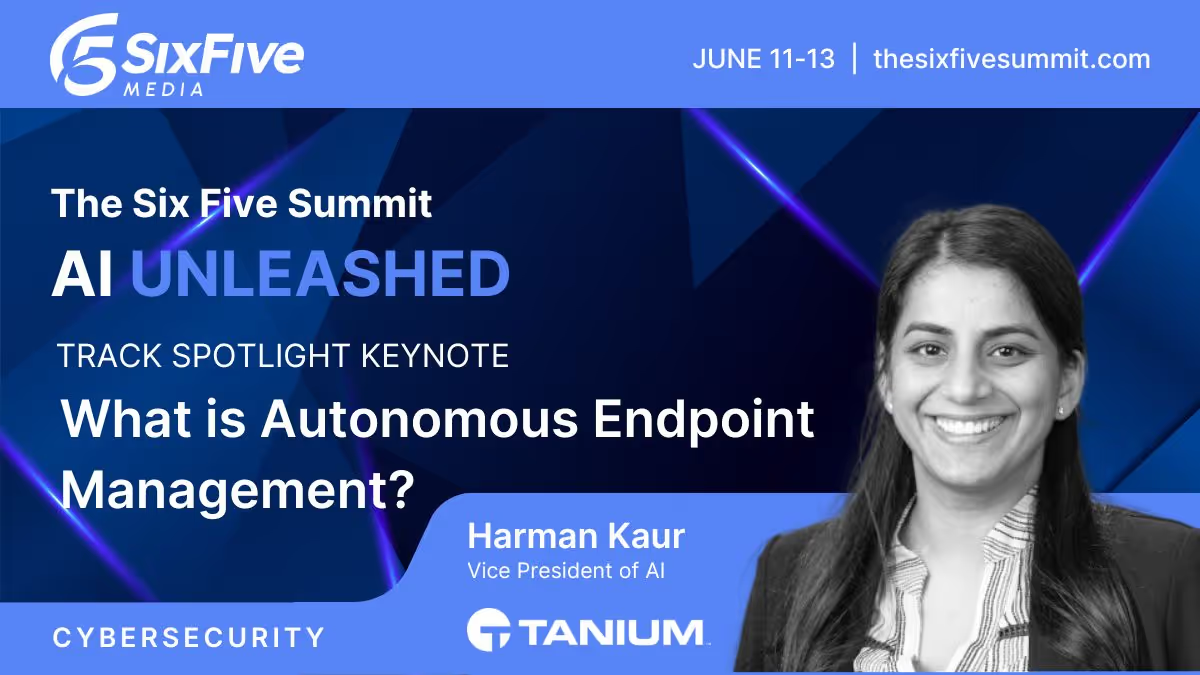Adapting to Change: Engaging Business Users, New Tech, and Operationalizing Growth
Chris Haynes, Associate Director IT Operations Services at Raymond James Financial, joins Mike Vizard to share his insights on how IT operations can harness new technologies and engage business users to fuel growth.
Looking to future-proof your IT Operations? Host Mike Vizard is on Six Five Media at BMC Connect with Raymond James Financial's Chris Haynes, Associate Director IT Operations Services, for a conversation on how IT operations can adapt to change and drive business success while integrating new technologies, and operationalizing growth.Their discussion covers:
- Strategies for effectively engaging business users to drive IT initiatives
- The role of new technologies in transforming IT operations
- Challenges and solutions for operationalizing growth within IT sectors
- Best practices for IT teams to adapt to rapidly changing business environments
- Insights on future IT trends and how organizations can prepare
Learn more at BMC Software andRaymond James Financial.Watch all of our coverage and be sure to subscribe to our YouTube channel so you never miss an episode.
Mike Vizard:
Hello, I'm Mike Vizard, and we're with Six Five On The Road again, and we are here in Las Vegas at the BMC Connect event with my good friend, or at least brand new friend, Chris from Raymond James. Chris, welcome to the show.
Chris Haynes:
Thank you. I appreciate you having me. Great to have a conversation with you.
Mike Vizard:
One of the things that we are going to discuss here is the pace of change and how to absorb it and manage it. And I guess the first question I would have to ask you is, it seems to me at least that the pace of change is faster than ever in the land of IT, but I don't know. From your perspective, are you seeing the same thing?
Chris Haynes:
Lightning speed would be an understatement. To be frank, just from our growth internally, we've just been from a Control-M perspective, where I sit, we've seen 10, 15% increase in what we're executing each year for the last three years. And we see that continuing to grow with additional technologies coming into place. I think AI, everybody heard of that, that's going to have some play there as well, but integrating with all the new technologies, the word disruptor used to be used a lot. I don't think that's the case. That's just the natural flow, and it's across the entire IT ecosystem. So I think it's very interesting, challenging, but that's what keeps us going.
Mike Vizard:
As the man said, if you're not current, you're falling behind, right?
Chris Haynes:
That's 100%. And we're always trying to just take advantage of every opportunity to serve our customers the best we can, putting them and their goals as first. That's really what Raymond James is about, putting the client first and our advisors first, putting them into position to meet all their goals.
Mike Vizard:
Is there any kind of consistent, quote, unquote, "magical framework" for absorbing emerging technologies, or is each case kind of slightly different?
Chris Haynes:
I think we're always striving for that, and every business is a little bit different on what their goals are. We try to have that framework. I think standards were talked about a lot earlier in the session I was at, and that couldn't be truer. For any automation you're doing, you've got to stick to your standards or you're going to lose yourself. So we have that kind of structured blueprint to a degree, but as things emerge and change, we have to be agile. And that's something we continue to strive for as well, be agile so we can integrate with new technologies and not put ourselves in a bad position.
Mike Vizard:
You, of course, cannot walk down the street these days without somebody leaping out to tell you about their great new AI thing. From your perspective, is AI an existential threat to existence, transforming IT for the better, or somewhere in between? What is the mood of AI at your organization?
Chris Haynes:
I think where we're looking at is, where we look at every technology is where does it make sense for us to fit that into our business model? How is that going to be beneficial to us and our customers? That's really always the priority, always continuing to improve. I think we've managed to get our SLAs, all our critical business SLAs, over 98%, so we're not going to stick with that, right? So we're looking for emerging technologies. I think AI is something that's definitely going to play into everybody's world one way or the other. Obviously there are some threat pieces, but we want to understand that, and I think you have to be careful as you introduce that AI into your business model to understand exactly what the impact's going to be and understand the values and the problems that it's going to solve for you.
Mike Vizard:
I was talking to some IT folks about this, and they were pointing out, last year, everybody was having this kind of reaction, little fear and loathing, and now they're kind of sitting around going, "I'm not sure I want to do this job without some help from AI. It's getting too complex, it's too hard."
Chris Haynes:
100%. I don't think we're seeing complexity go away. It's becoming more complex, and it's another tool in the toolbox ultimately that's going to help simplify some of these more complex tasks at a faster rate. You're able to achieve these goals, whatever that is for your business. Like I said, I look at it as a future tool that's going to grow, evolve, but that's also what we want to do, so it aligns with what we want to do.
Mike Vizard:
How do you have this conversation with the business side? And I know we've all kind of experienced this thing where some exec somewhere is on an airplane reading a magazine, and then some great idea comes flying down the pike, and everybody's supposed to react, but it takes a while to kind of work something into a system. So how do you manage the expectations?
Chris Haynes:
Right. I think you have to understand your problem and what AI is going to do for you. There's always that fear, oh, it's going to take these jobs, it's going to do that. No, we have to fold that into our current processes and what we're doing today to help make them better. Continuous improvement is really a theme, and I think that plays into it for everybody.
Mike Vizard:
You talk to your colleagues all the time. You met a few of them here at the show. What are you guys talking about amongst yourselves?
Chris Haynes:
It's a lot of the continuous improvement, looking for opportunities to spark that idea. It might not be out of a magazine on the airplane, but I think that's one of the... Stuff like this, we really get a ton of value out of coming into this and conferences because it's not always necessarily what you're hearing in those sessions. It is having those conversations with colleagues to understand maybe they're doing something a little different that may spark an idea in what you're doing in your world that'll help bring you to another level. I think that collaboration doesn't have to just be in your house. Talking to others across the board is just super important.
Mike Vizard:
If you take a minute back, what do you know now that you kind of wish you knew a year ago, a year and a half ago, when you were doing some of these journeys? I guess what have you learned in the last year or so that you go, hey, this has done me well?
Chris Haynes:
How much time have we got here? I think that sticking to your standards is such an important thing. We've stubbed our toe on that so many times where you, oh, we'll come back to it later, but you stub your toe, you're going to be bleeding. You've got to stick to your horses on that, stay your horses. And really, everybody gets that call from someone who's above you, "Hey, can you just get this through that one time?" But it ultimately doesn't pay off for you. Even if you meet that deadline, you're still putting something that's not really standardized into your production environment, and there's standards for a reason. It keeps us all in a good space and stable, and I think anyone that I talked to, they know stability is number one. You can have as many shiny toys or new video games, but if they don't work.
Mike Vizard:
All right, folks, you heard it here. It's not only important to have standards, but you got to keep them. Hey, Chris, thanks for being on the show.
Chris Haynes:
Thanks for having me.
Mike Vizard:
Thank you all for watching this latest episode of The Six Five On the Road at BMC Connect. We have a ton of these episodes now. We invite you to check them all out, and we'll be back in a minute.
MORE VIDEOS
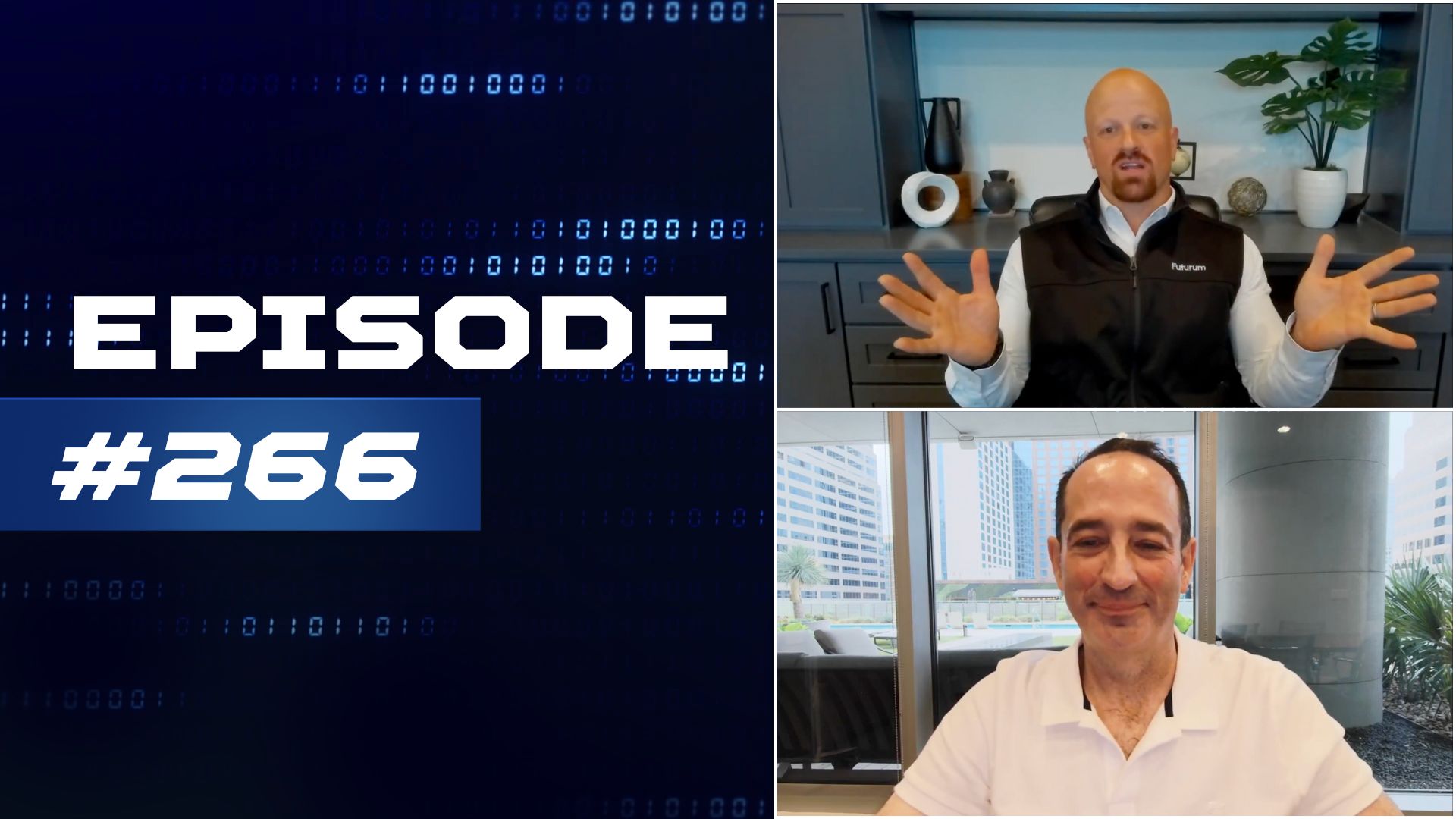
The Six Five Pod | EP 266: Tech Giants' Chess Moves - From Meta's Hiring Flex to Oracle's Cloud Surge
On episode 266 of The Six Five Pod, Patrick Moorhead and Daniel Newman dive into the latest tech news and trends. They discuss OpenAI's talent poaching by Meta, the impact of AI on job markets, and Tesla's robotaxi rollout in Austin. The hosts debate the merits of autonomous vehicles and their potential societal impact. They also analyze recent market movements, including Oracle's $30 billion cloud deal and HPE's acquisition of Juniper Networks. The episode provides insights into the evolving AI landscape, its economic implications, and the resurgence of legacy tech companies in the new era of artificial intelligence and cloud computing.
Other Categories
CYBERSECURITY
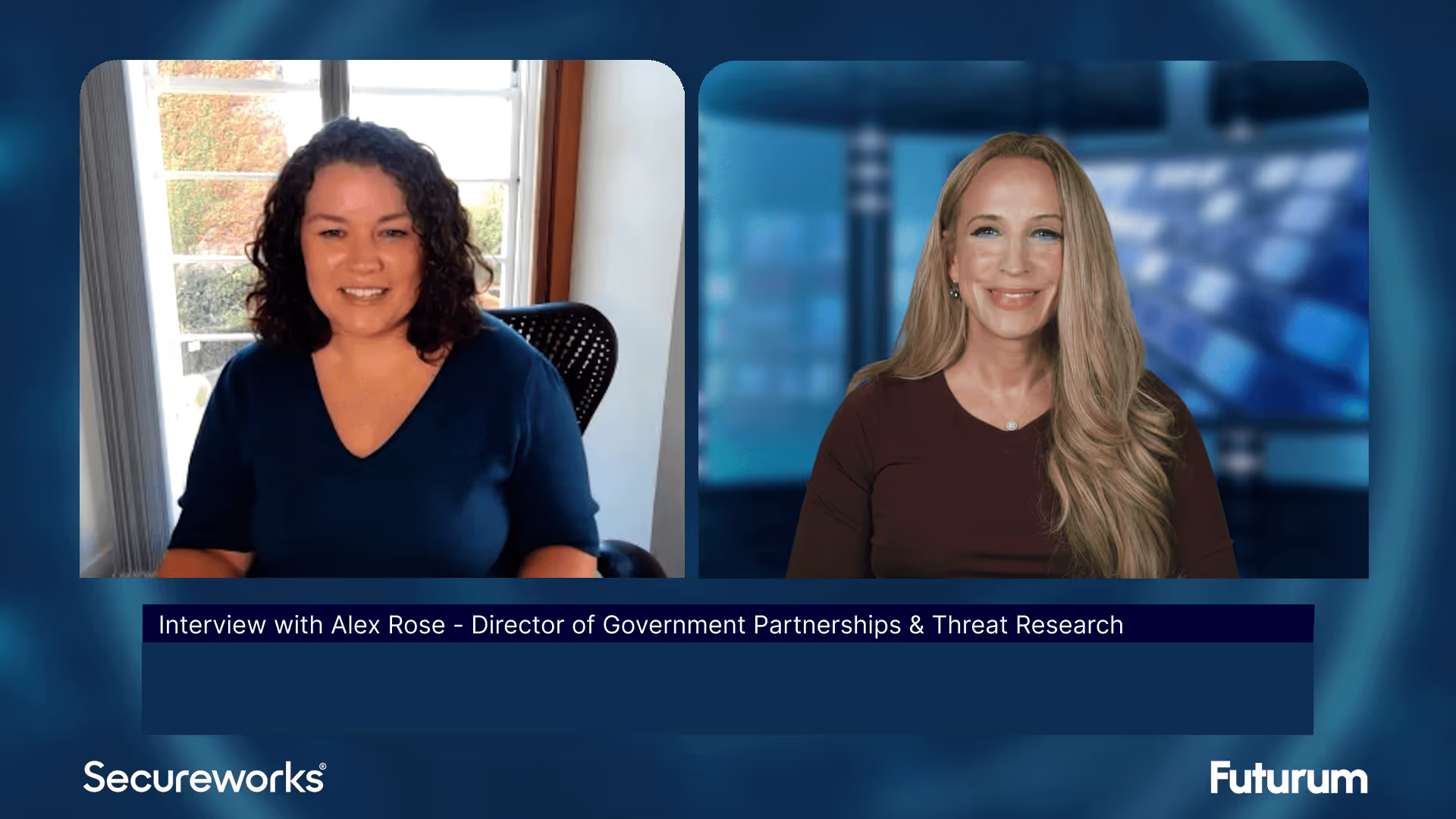
Threat Intelligence: Insights on Cybersecurity from Secureworks
Alex Rose from Secureworks joins Shira Rubinoff on the Cybersphere to share his insights on the critical role of threat intelligence in modern cybersecurity efforts, underscoring the importance of proactive, intelligence-driven defense mechanisms.
QUANTUM
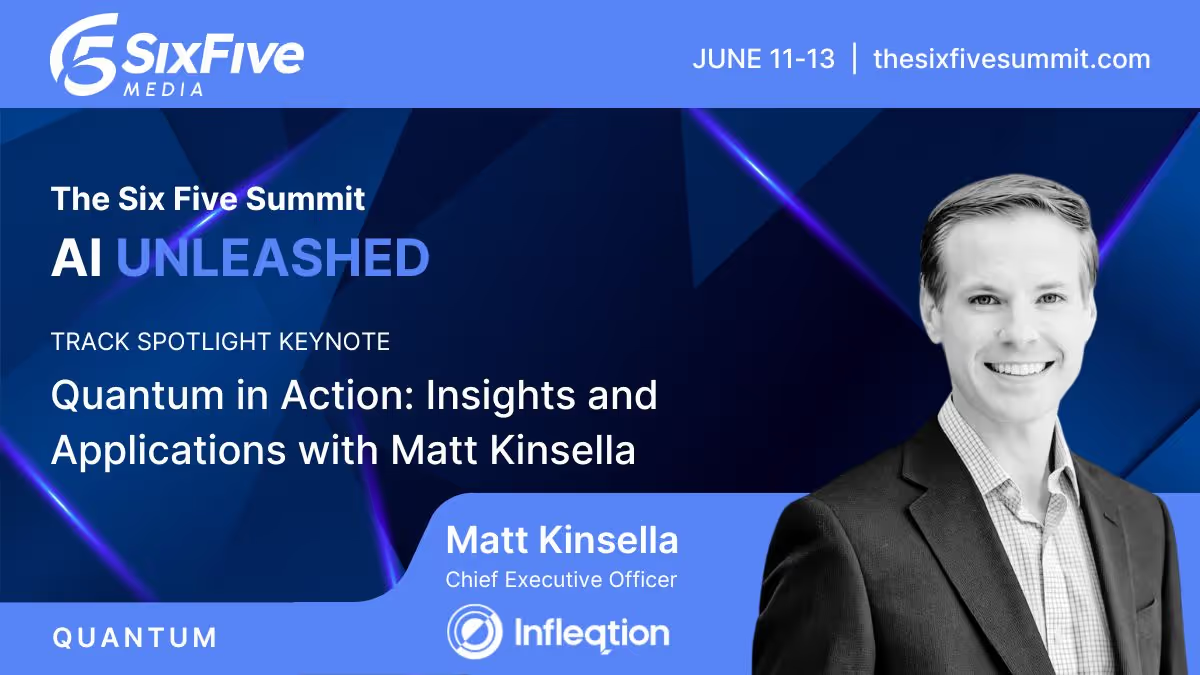
Quantum in Action: Insights and Applications with Matt Kinsella
Quantum is no longer a technology of the future; the quantum opportunity is here now. During this keynote conversation, Infleqtion CEO, Matt Kinsella will explore the latest quantum developments and how organizations can best leverage quantum to their advantage.
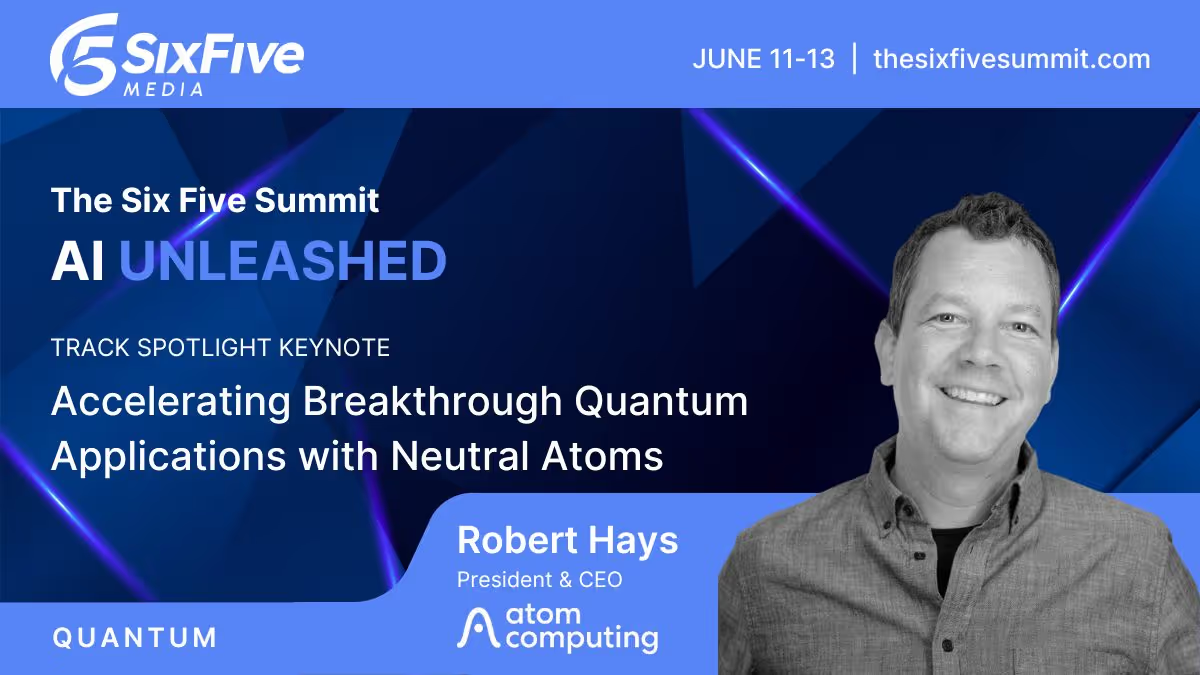
Accelerating Breakthrough Quantum Applications with Neutral Atoms
Our planet needs major breakthroughs for a more sustainable future and quantum computing promises to provide a path to new solutions in a variety of industry segments. This talk will explore what it takes for quantum computers to be able to solve these significant computational challenges, and will show that the timeline to addressing valuable applications may be sooner than previously thought.






